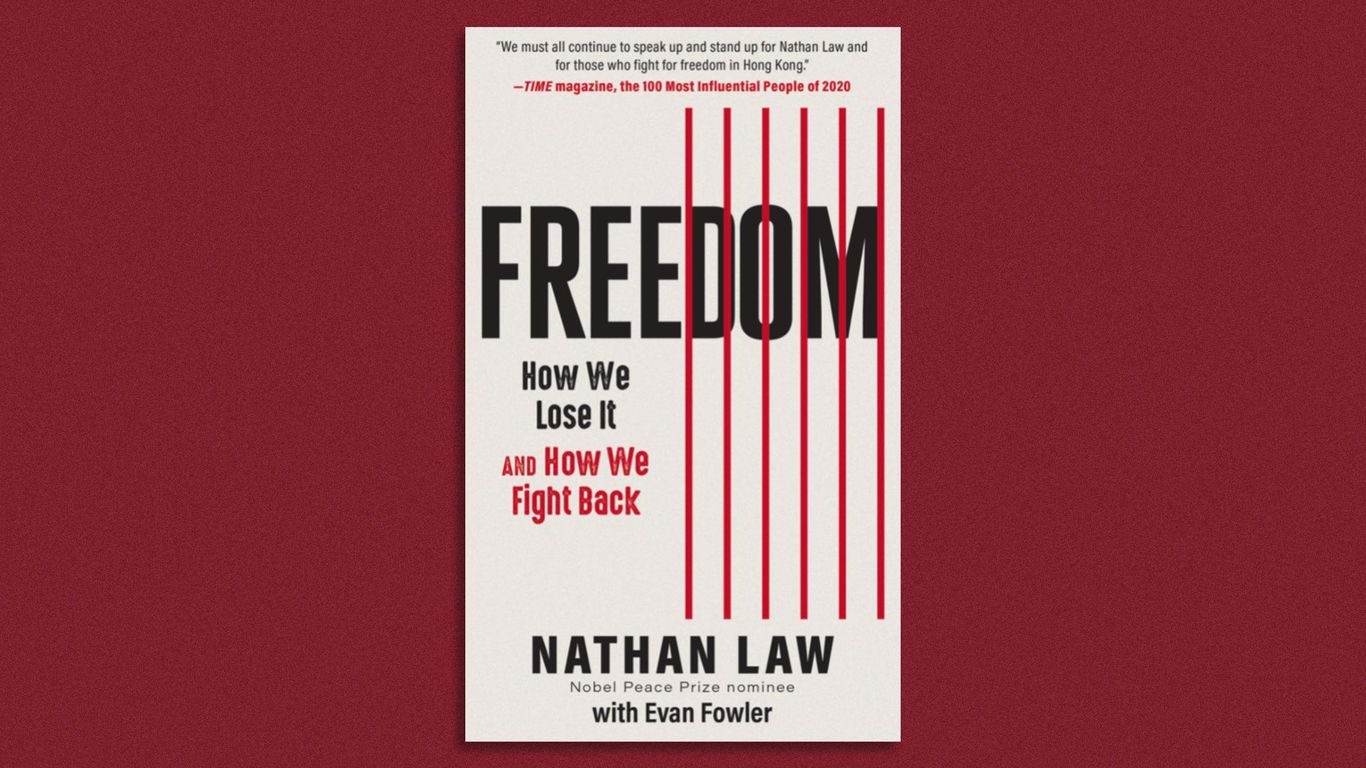
In a new book, former Hong Kong lawmaker Nathan Law connects his experiences as a pro-democracy activist in Hong Kong with China's attempts to curb freedoms around the world.
Why it matters: "It’s really important that we see Hong Kong as part of the puzzle in a bigger picture of democratic recession, so we can equip ourselves more as China expands its authoritarianism around the world," Law told Axios in an interview.
Driving the news: In "Freedom: How We Lose It and How We Fight Back," Law describes how Beijing was able to subvert Hong Kong's traditional freedoms and how the CCP uses doublespeak to rob democratic values and institutions of their true meaning.
- "The fear of living in an unfree city may not be physically constraining in the way a prison is, but it is no less restricting to the mind," Law writes.
- "When the lines around what constitutes a crime begin to blur, your imagination becomes your own worst enemy."
The backstory: Law narrates how his family originally came from rural Guangdong province, immigrating to Hong Kong when he was 6 years old in search of economic opportunity and freedom from communist restrictions.
- In 2016, Law became the youngest person to be elected to Hong Kong's representative body, but he was removed several months later after he made a subtle protest of Beijing during his oath. In 2017, he spent several months in jail for his role in a 2014 protest.
- After Beijing forced a national security law on the city in 2020, a final blow in a series of growing restrictions on democratic life in the city, Law found himself making the same journey as his parents, but this time from Hong Kong to London, where he was granted asylum.
- "By bringing out my personal story, you can see that people who protest in Hong Kong aren’t anti-China in a cultural sense, but are fighting a brutal authoritarian regime," Law told Axios.
"Freedom, in practice, is never absolute. But we shouldn't confuse freedom with having a seeming abundance of choice," Law writes.
- He gives the example of China's more than 2,000 television channels, which feature many different topics but all conform to a single ideological narrative.
- Different societies make different decisions about when to restrict freedoms and for what purpose, but that doesn't mean freedom is relative. In a free society, "freedom is restricted only to protect, and not to empower authority," Law writes.
- The true meaning of freedom is "the ability to hold values and make choices that the ruling party does not like."
The bottom line: "Where economic leverage had once been the means by which Hong Kong's limited freedoms were meant to be protected, today trade is used by China to apply pressure to reshape freedom around the world," Law writes.
"freedom" - Google News
January 18, 2022 at 11:42PM
https://ift.tt/33Q9hp7
A Hong Kong exile's manifesto for freedom - Axios
"freedom" - Google News
https://ift.tt/2VUAlgg
https://ift.tt/2VYSiKW
Bagikan Berita Ini














0 Response to "A Hong Kong exile's manifesto for freedom - Axios"
Post a Comment